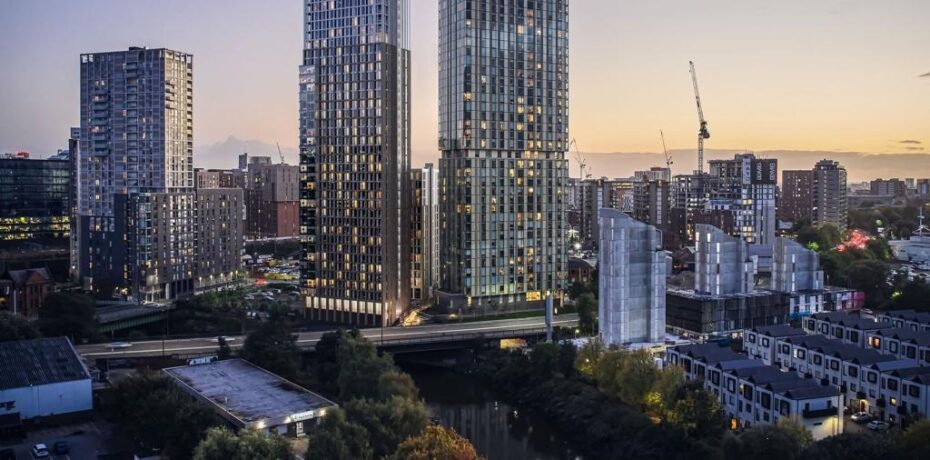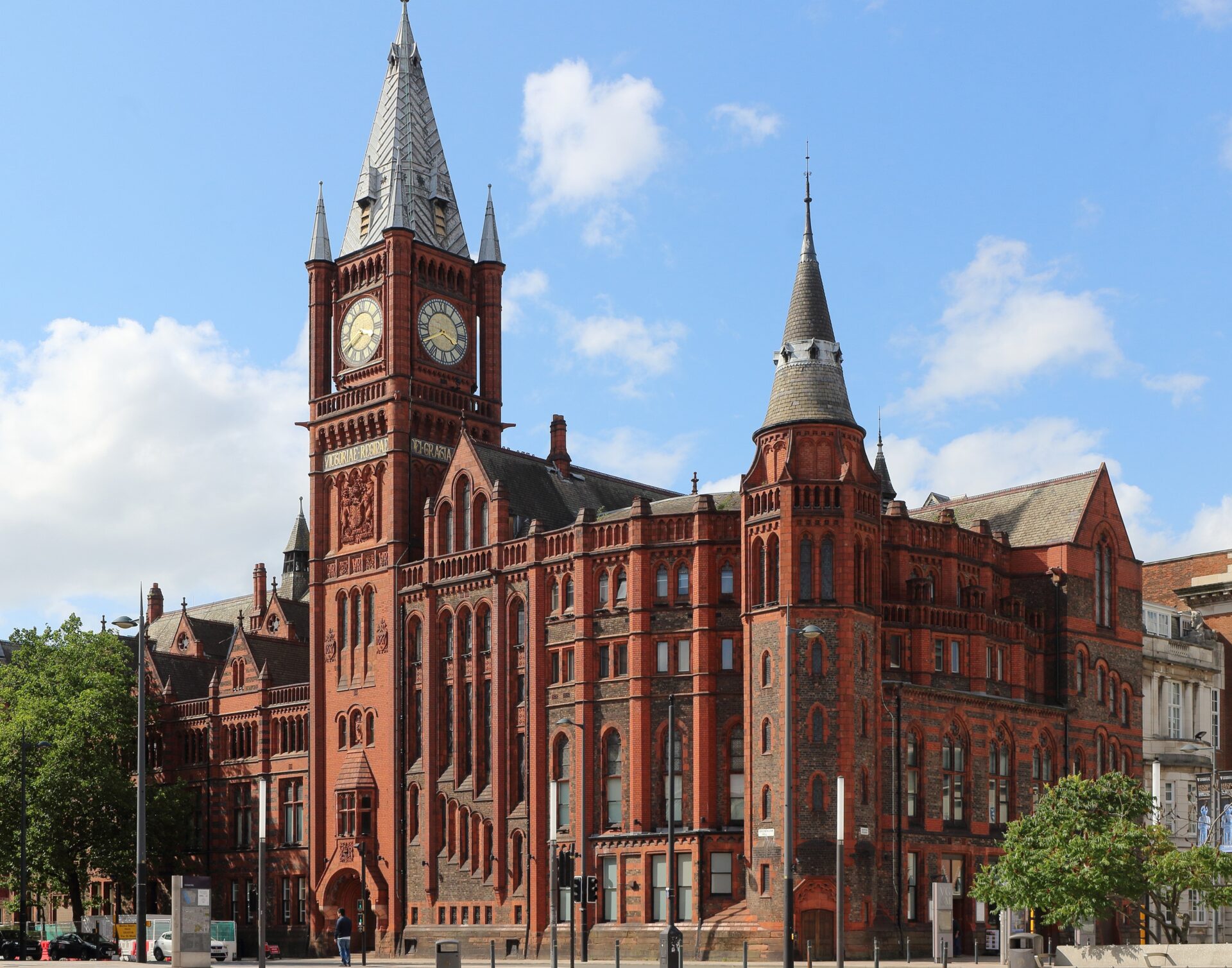The Subplot
The Subplot | Manchester’s tipping point, Bolton blues
Welcome to The Subplot, your regular slice of commentary on the North West business and property market from Place North West’s analysis editor, David Thame.
THIS WEEK
- Supply side: Manchester city centre’s for-sale apartment market reaches tipping point, thanks in part to the cladding scandal
- Elevator pitch: who is going up this week, and who is going down

CAN’T BUILD THEM QUICK ENOUGH
How much is enough in Manchester city centre residential?
An unexpected side-effect of the cladding crisis ought to be ringing warning bells. Is it?
The Grenfell fire left a terrible legacy. Nobody quite agrees on the numbers, but somewhere between 120 and 180 of the 500 high rise blocks in Greater Manchester have (or had) dangerous cladding, as did many mid-rise blocks. A large number are in the Salford and Manchester city centre market. With residents unable to sell their apartments (for lack of an EWS1 fire safety certificate) or facing unsustainable renovation costs, the city apartment scene ought to be in crisis.
Leasehold undone
UK-wide it probably is. For instance, the number of flats on the market in London is up 20% over two years, according to TwentyCi. It is hardly a surprise. Who in their right mind would buy leasehold if they could possibly do otherwise?
Local distortions
Yet in the Salford-Manchester city living sector the cladding crisis hasn’t reduced demand. On the contrary, it has intensified an already super-charged market. By removing an enormous number of first-time buyer apartments from the equation – temporarily in most cases, forever in some – it has put an already boiling market in a supply-side pressure cooker. JLL data suggests the average sale price in Manchester City Centre and Salford Quays rose by 22% in 2021, from £322,856 to £392,469. Prices for two-bedroom flats rose fastest.
Cladding crisis side-effects
“Cladding is a huge issue because we’re not seeing the opportunities for buyers to trade up,” says Louise Emmott, JLL’s head of Northern residential agency and development. “The trading up from smaller, older apartments in blocks 10-15 years old to newer larger ones hasn’t been working properly for a couple of years. We think about 40% of affected second-hand buildings have EWS1 forms now, so people can buy or sell, but 60% haven’t, and that means thousands of apartments, easily 5,000 or more involved.” That’s thousands unavailable for first-time buyers to buy.
The ladder is missing steps
Put it another way: “Potential second-time buyers are in limbo, trapped in their first-time buyer flats, and that means by staying put they are not releasing flats ready for new entrants to buy. Basically, the circle is broken,” says Anthony Stankard, managing director of Reside Manchester.
Nobody is building
If that was the only problem it would be bad enough. But it isn’t, because the supply of new build has also got blocked. Deloitte’s Crane Survey, published yesterday, shows the total pipeline in central Manchester falling from 12,357 in 2019 to 10,717 today (on 40 development sites) but that data conceals a more serious short-term plunge, says Stankard.
Cranes are misleading
“People see cranes everywhere and they can’t understand why buyers genuinely can’t find anything,” he says. “The explanation is that we saw 5,500 completions in 2021, but we’ll only see 2,200 in 2022 because there were so few starts in 2020. And of those 2,200, most are pre-sold or private rented.”
Surprise surprise
With supply squeezed by the pandemic and by the cladding crisis, no wonder Manchester-Salford apartment prices are through the roof. Agents report a thrilling January. New buyer registrations running at 1,000 a month (as opposed to 100 a week); 10 sales in January last year, but 45 this. It’s like Christmas never stopped. Long-stalled schemes like Salford’s £90m 300-unit Legacie (pictured above) are back on track.
It’s an ill wind
Meanwhile, one or two large schemes, becalmed by the pandemic and by stiff competition, are suddenly selling like mad. “More progress at Manchester Square in the last three months than in the previous three years,” one observer wryly observed.
And other winds
There are three reasons for caution, some of them pulling one way, some another. First, Chinese buyers still account for 30-50% of pre-sales over the market as a whole. That’s a lot of eggs in a very uncertain basket. Second, Help To Buy ends next month. There are plenty of schemes where all, or almost all, buyers used Help To Buy – Emmott points to Muse Developments’ 178-unit Atelier scheme at Chapel Street – and without it, life could be tougher, and certainly slower.
And inflation
And reason three? Inflation, of course. This writer bought his first Manchester flat with mortgage rates at 11% and it would be interesting to see how today’s first-time buyer market reacted to something similar. We may get a chance to find out, and even at 5%-6% it could leave developers with a lot of unsold apartments or repossessions. Neither is a good look.
No fear
Manchester’s market-makers are undaunted. “Interest rate rises and the economy out of control aren’t good, but the local Manchester microclimate is of supply shortage. Yes, a price correction is coming, but maybe not yet in Manchester,” says Stankard, who reckons the wider national trend will be blunted or softened here. This is a widely shared view. But is it a wise one?
Manchester’s property markets have defied gravity, and UK trends, for years. But can it continue to do so?
 ELEVATOR PITCH
ELEVATOR PITCH
Going up, or going down? This week’s movers
An old friend to the property industry – gap funding – climbs aboard and enjoys the ride, meanwhile attempts to get a go-kart inside looks likely to end with the doors stuck open.
 Gap funding
Gap funding
Bolton Council wants to help the town bounce back. A £20m levelling up funding application could make a world of difference. That’s good news for Bolton, and maybe good news for everyone else, too. The move represents a return to favour for good, old-fashioned gap funding. Gap funding – plugging the viability gap between the commercial prospects of a building (low) and its build costs (high) – fell out of favour for all kinds of reasons, including a sense that too much money was going into property, and that some developers did a bit too well out of it. The coup de grace was dealt by a European Union decision in 1999 that gap funding wasn’t a good fit with state aid rules. It was all downhill after that, and the death of regional development agencies in 2012 concluded the story.
Brexit and Michael Gove’s regeneration rethink have combined to offer an opportunity for a revival of gap funding, and Bolton has some proposals. Council leader Cllr Martyn Cox says: “Property values just don’t justify remediation on a lot of good town centre sites, so we’ve put together a bid for four or five schemes each with a funding gap of about £5m.” Le Mans Crescent, which needs expensive reconfiguration and a clean-up, is top of the list. “We’ve already had several developers look at it,” says Cox. “We need gap funding – and that’s true too in Rochdale, Oldham and elsewhere – because we’ve got funding gaps and we need momentum.” Mr Gove, are you listening?

 Go karts
Go karts
Sometimes one property trend comes to the rescue of another. The fad for competitive socialising – crazy golf, axe throwing, darts – has now collided with the dilemma of what to do with defunct department stores to produce what landlords hope is a supernova of rental opportunities. Grosvenor plans to fill the upper floors of the 185,000 sq ft yawning void created by Debenhams’ collapse with an 80,000 sq ft leisure destination in Liverpool. Go karts are anticipated, and Avison Young is advising.
Grosvenor follows in the footsteps of mini golf down the road at the Lyceum, and of almost every city centre landlord with large, poorly lit basically un-lettable spaces to get off their hands. This wizard idea is not cost-free. Fit-out bills are often met by landlords – think £500,000 and keep climbing – and then add the cost of 12-18 months rent-free incentives, and it adds up to a lot. Subplot (16 March 2021) has already reported on the risks to landlords in a very young market with lots of poorly capitalised operations all taking their first steps. Competitive socialising feels like the ideal floor filler but in some (many?) locations it could be short-lived, or an expensive dead end.
Get in touch with David Thame: david.thame@placenorthwest.co.uk | 01544 262127
The Subplot is brought to you in association with Oppidan Life.






Anyone who has walked down Deansgate or Oxford Rd the past two weeks has been given an insight that a market collapse may be unavoidable.
If most of your jobs are “work anywhere”, or even “work mostly anywhere”, and your high street can’t sustain its businesses, why would anyone choose to live in Manchester city centre in the longer term?
I note recent attempts by property agents to big up the possibility of working in London while living in Mcr CC! It screams of desperation to find a new pitch that resonates (it really doesn’t).
The cladding trap may work in the city’s favour. People won’t move out if they can’t!
By Jeff
Leasehold is not the reason for building safety failures, the tenure of a property is not correlated to the quality of construction. All apartments are leasehold so you may as well say “don’t buy apartments” which I’m sure you wouldn’t as it is not true
The Government, who are largely to blame for the regulatory failings, have acted to step in and provide funding. This “should” mean that the majority, hopefully all, of these buildings are remediated and brought back into the market. Savvy investors are already buying discounted units in buildings with issues in the knowledge that Gov is funding the issues so values should normalise
By Fact Checker
There are a few inaccuracies in this report. Firstly, the average city centre sales price is currently around £242k. The average price has been steadily rising and has increased at its fastest rate between mid-2019 to now. This increase is attributed largely to the premium placed on new-build stock and a secondary market that has been severely subdued due to fire safety issues (sales volumes have fallen by two thirds since the start of 2020).
In terms of completions there are around 3,100 homes expected to complete during 2021-22 and 2,350 completing 2022-23. Around half (not most) of these are build to rent. This isn’t a trend to worry about though: the estimated number of completions for 2023-24 is ~4,700 with most being market housing and the highest number of affordable homes in many years.
By Rob
Jeff, I think you are thinking of an entirely different market , probably an entirely different city! But that’s OK, success often spreads out, things will get better, you just have to be patient.
By Anonymous
‘I live in city ctr mcr because…’
You would be surprised at exactly why people want to live in Mcr city centre. You’ve got it completely wrong Jeff.
By Mike B
@Jeff, if you think Manchester city centre is struggling for residents to fill the properties you are massively mistaken. The empty property rate is <2% (0.5% for the whole city). It's actually very difficult for people to get into a property hence why so many more continue to be built and planned. You may not want to live in the city centre but have you ever thought that perhaps not everyone is like you?
By Rob
Hmm sensitive much!! Just because the market is competitive doesn’t much a crash won’t happen. It just means that more people fall harder when it comes.
I’m not a believer in success spreading outward. But risk of contagion is real. It’s not in my interests for this to happen, but I cannot see how it can be avoided.
The high street recovery index places Manchester second from bottom along with London. And Manchester isn’t London.
By Jeff
Jeff’s comment on “why would you live in the centre if you don’t work there” is classic suburb behaviour.
We live in the city because it’s a fantastic, thriving place to be with tonnes of amenities and fantastic hospitality.
Most of us commute OUT to the boring ‘burbs.
By CFN
Also many affordable new built properties (like Circle Square for example) are marketed as “investors only” so it’s not available to the average mortgage buyer who is actually looking for a place to live in.
By Levi
@Jeff, some cities have a certain magnetism, it may last for a short time or a considerable amount of time. At the moment Manchester has jobs in abundance, many in the media, law, and finance, and they pay very, or,reasonably well,and this attracts younger, well educated people who want to congregate together, a bit maybe like Barcelona or Montpelier. When this happens too then obviously developers come in to satisfy demand as this cohort wants to be near the bars and other cultural attractions.
Liverpool is not attracting those kind of jobs in anywhere near these numbers so is not registering the activity, which is unfortunate because many younger, forward-thinking people are living in the centre but overall the inadequacy of the city council is the main difference to me as they have no vision or idea how to plan a modern city, and until the council diverts a lot of it`s thoughts from pavement politics to job creation and allowing the market to express itself more then positive things won`t happen as quickly.
By Anonymous
Jeff you are not as you say a believer in success spreading outwards but that doesn’t matter, it will in time and since you are lucky enough to be able to travel here or maybe even work here, then even if it doesn’t,you too can enjoy the success and the vibe . We have had to endure many years of chronic under investment as well although we have been enjoying a couple of decades of serious development too which ebbs and flows depending of macro circumstances and which will continue to do so. Covid and the the whole WFH thing? Just a blip in the great scale of what’s been happening across the city. As for London, no Manchester is certainly not trying to be that even if some of the Civil Service are coming here. But it is developing at an astonishing rate to the point it is one of the fastest developing cities in Europe. We couldn’t have said that 20 years ago!
By Anonymous